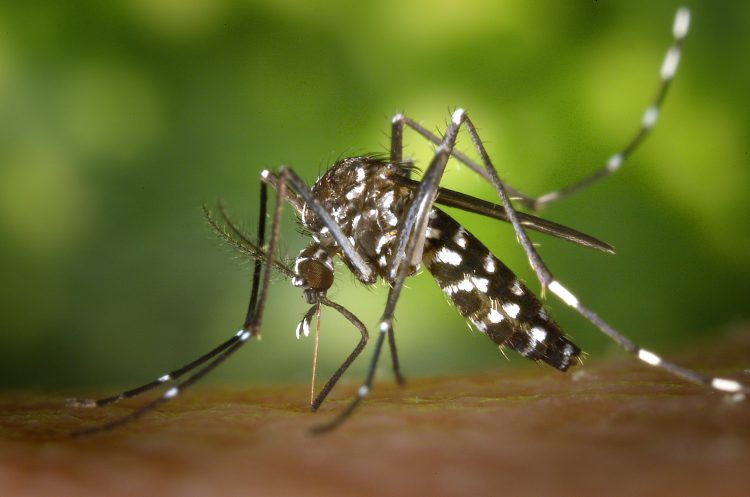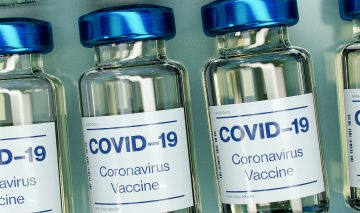As dengue rages on, confusion galore about what it is and what its symptoms are. Here’s what you need to know
Pravin Bhatta / September 20, 2022
A week ago, Samir Rijal, a resident of Lokanthali in Bhaktapur, started feeling feverish, nauseous and pukish. Initially, he thought he had been infected with Covid-19. However, after tests, he was diagnosed with dengue. He recovered after receiving treatment at the Nepal-Korea Friendship Hospital in Thimi and taking bed rest for five days.
“I had a hard time recovering and still feel tired,” Rijal told South Asia Check.
Rijal’s is a representative case of 17,594 dengue cases in Nepal this year. Ninety-nine percent of these cases are reported from June to September. Bagmati province tops the list, having reported 12,947 cases, while Lumbini has reported 2,643 cases. District-wise, Lalitpur tops the list, with 4,878 cases, followed by Kathmandu, with 4,674 according to a report by the Epidemiology and Disease Control Division of the Ministry of Health and Population.
As dengue turns into a serious health crisis, South Asia Check explains what it is and how we can save ourselves from being infected by it.

What it is
Dengue is a vector-borne disease caused by the bite of mosquitoes of the Aedes species–Aedes Aegypti or Aedes Albopictus. These mosquitoes also cause Chikungunya, yellow fever and zika viruses. Dengue is caused by a virus of the Flaviviridae family, which are of four serotypes: DENV1, DENV2, DENV3 and DENV4. Once infected by a serotype, an individual is believed to get lifelong immunity; however, cross-immunity is low to non-existent. So an individual can be infected by dengue four times in their lifetime.
Dengue was first detected in Nepal in 2004; all four dengue serotypes were detected in 2006.
How it is transmitted
Dengue is transmitted primarily through mosquito bites. When the mosquito feeds on viremic people, it carries DENV with it. The DENV replicates inside the mosquito’s midgut and, for about eight to 12 days of extrinsic incubation in ambient temperature, it gets ready to be transmitted to the new host. The mosquito bite can infect a healthy individual. These mosquitoes are daytime feeders; their peak biting time is morning and evening before sunset.
A pregnant woman infected by DENV might pass the virus to the foetus. In rare cases, blood transfusion, organ transplant and needle stick injury may transmit the virus.
How to stop its transmission
One way of stopping the transmission of dengue is to destroy mosquito breeding sites. With rapid urbanisation, mosquitoes have found newer sites for breeding, including used tyres, buckets, mud pots, or storm water drains. Dr. Sher Bahadur Pun, chief of the Clinical Research Unit at the Sukraraj Tropical and Infectious Disease Hospital says destroying breeding sites is the most important step towards curbing dengue transmission.
How severe it gets
Most dengue cases are asymptomatic and/or cause symptoms such as high fever, nausea, headache, body pain, vomiting, and rashes. The World Health Organization (WHO) has classified dengue into two categories: dengue and severe dengue. According to Dr. Pun, severe dengue can develop during the critical phase; so we need to be careful even after the fever drops.
Patients can develop progressively worse symptoms during the critical phase of the disease, three to seven days after the onset of the illness. If the patients experience severe abdominal pain, persistent vomiting, rapid breathing, bleeding gums and nose, restlessness, fatigue, or blood in vomit or stool, they need close observation for the next 24 to 48 hours, according to WHO.
Treatment
There is no specific treatment for dengue. Physicians advise patients to rest, stay hydrated, seek medical advice, and take only paracetamol to control fever. Nonsteroidal anti-inflammatory drugs such as ibuprofen and aspirin are to be avoided as are known to increase bleeding risks. Patients experiencing warning signs of severe dengue should visit a hospital immediately, as they need close observation and treatment based on their symptoms.
A vaccine named Dengvaxia should only be given to a person who had a dengue infection previously. If given to a person who has no history of being infected with dengue, the vaccine can cause hospitalisation and severe dengue.
How not to confuse it with Covid-19
Nepal is at the moment facing a double whammy of dengue and Covid-19. Patients infected with dengue often conflate the symptoms with Covid-19, as some symptoms, including fever, are common. But there are also differences, knowing which patients can be better informed about their ailments.
According to Dr. Pun, Covid-19 patients develop respiration-related symptoms, and dengue will develop severe body pain. Dengue patients feel extreme body pain with fever, whereas Covid-19 patients develop symptoms like cough and breathing difficulties, which are generally not seen in the case of dengue. The most effective way of identifying whether it is Covid-19 or dengue, though, is testing.
Each year, almost 400 million people get infected with dengue. Out of them, 100 million fall sick, and about 40,000 die from severe dengue infection, per a report published by the Center for Disease Control and Prevention (CDC) of the United states. Current statistics show a rapid increase in infections in Nepal. The Epidemiology and Disease Control Division (EDCD) claims to have taken steps to control the dengue outbreak. It says in its report it is conducting orientation programs for health experts.
South Asia Chek fact checked earlier claims about papaya leaves extract being an infallible cure to dengue. In an earlier interaction with South Asia Check, Dr Prakash Gyawali of the Department of Ayurveda and Alternative Medicine, under the Ministry of Health and Population, had said, papaya leaf is not an antiviral property although it is known to increase platelet count in patients.
There are several reports about patients taking allopathic and anti-inflammatory drugs without consulting a physician. Taking such drugs without consultation may result in negative side effects. One should consider visiting a hospital if they develop symptoms.
This material is copyrighted but may be used for any purpose by giving due credit to southasiacheck.org.
Comments
Latest Stories
- In Public Interest Covid-19 cases are low, but that’s not an excuse to avoid vaccination
- In Public Interest What is BF.7, the sub-variant that has the world by its grip?
- In Public Interest Threat of a new Covid-19 wave looms large amid vaccine shortage in Nepal
- In Public Interest As cases decline, Covid-19 test centres in Kathmandu are desolate lot
- In Public Interest Dengue test fee disparity has patients wondering if they’re being cheated
- In Public Interest As dengue rages on, confusion galore about what it is and what its symptoms are. Here’s what you need to know
In Public Interest
 Covid-19 cases are low, but that’s not an excuse to avoid vaccination
The Pfizer-BioNTech bivalent vaccines authorised by the Nepal Government provide better protection a...
Read More
Covid-19 cases are low, but that’s not an excuse to avoid vaccination
The Pfizer-BioNTech bivalent vaccines authorised by the Nepal Government provide better protection a...
Read More
- What is BF.7, the sub-variant that has the world by its grip?
- Threat of a new Covid-19 wave looms large amid vaccine shortage in Nepal
- As cases decline, Covid-19 test centres in Kathmandu are desolate lot
- Dengue test fee disparity has patients wondering if they’re being cheated
- As dengue rages on, confusion galore about what it is and what its symptoms are. Here’s what you need to know